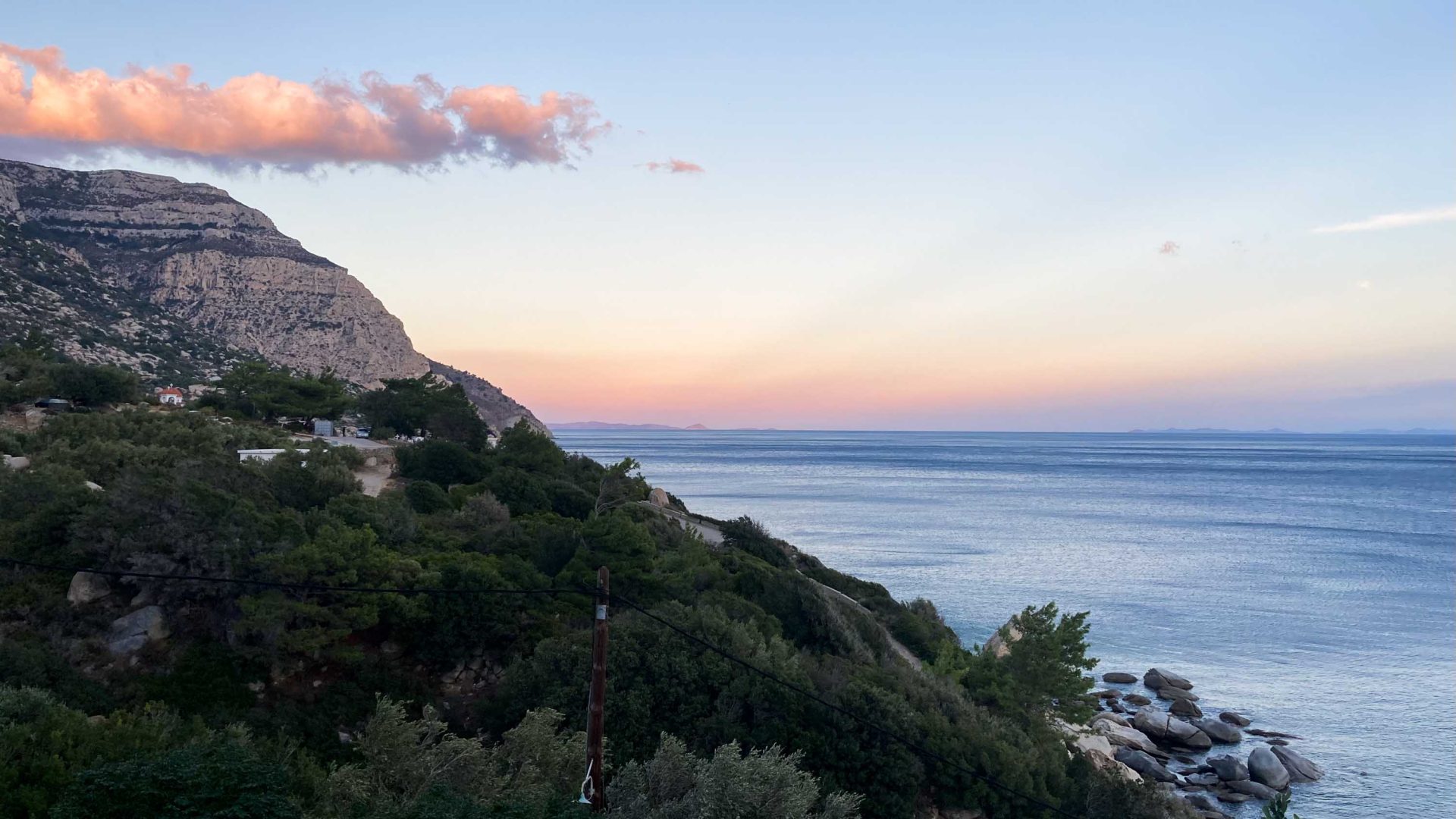
Lessons in longevity: What the Greek island of Ikaria can teach us about living a slower, longer, more sustainable life

Lessons in longevity: What the Greek island of Ikaria can teach us about living a slower, longer, more sustainable life
In the blue dusk, the wind whips across the Aegean Sea and the ragged granite mountains that punch above Magganitis in Ikaria’s southwest take on an eerie life of their own. Darkness falls and the vaulted sky glitters with stars.
In the courtyard of the village’s tiny mini-market, the party is underway. Half-a-dozen cats peek from behind potted herbs, and half-a-dozen locals sit gathered on plastic chairs. Fish and octopus caught that morning sizzle on the grill. Olive oil is drizzled onto salad and potatoes. Homemade red wine, potent and mouth-puckeringly astringent, is poured from PET bottles with generosity.
The gregarious owner of this makeshift taverna—she’s known to everyone as Bobo—fills glasses, cajoles us to eat, and regales us with island gossip. A lady dressed smartly in black walks in and greets us with a warm kalispera (good evening), eyes shining, posture graceful.
“Ah, it’s the doctor,” whispers Bobo, “Guess how old she is.” 75? I shrug—80? “She’s 95,” hisses Bobo. “And do you know why? She walks everywhere, watches what she eats, and doesn’t drink this stuff,” she laughs, pushing away a can of Coke.
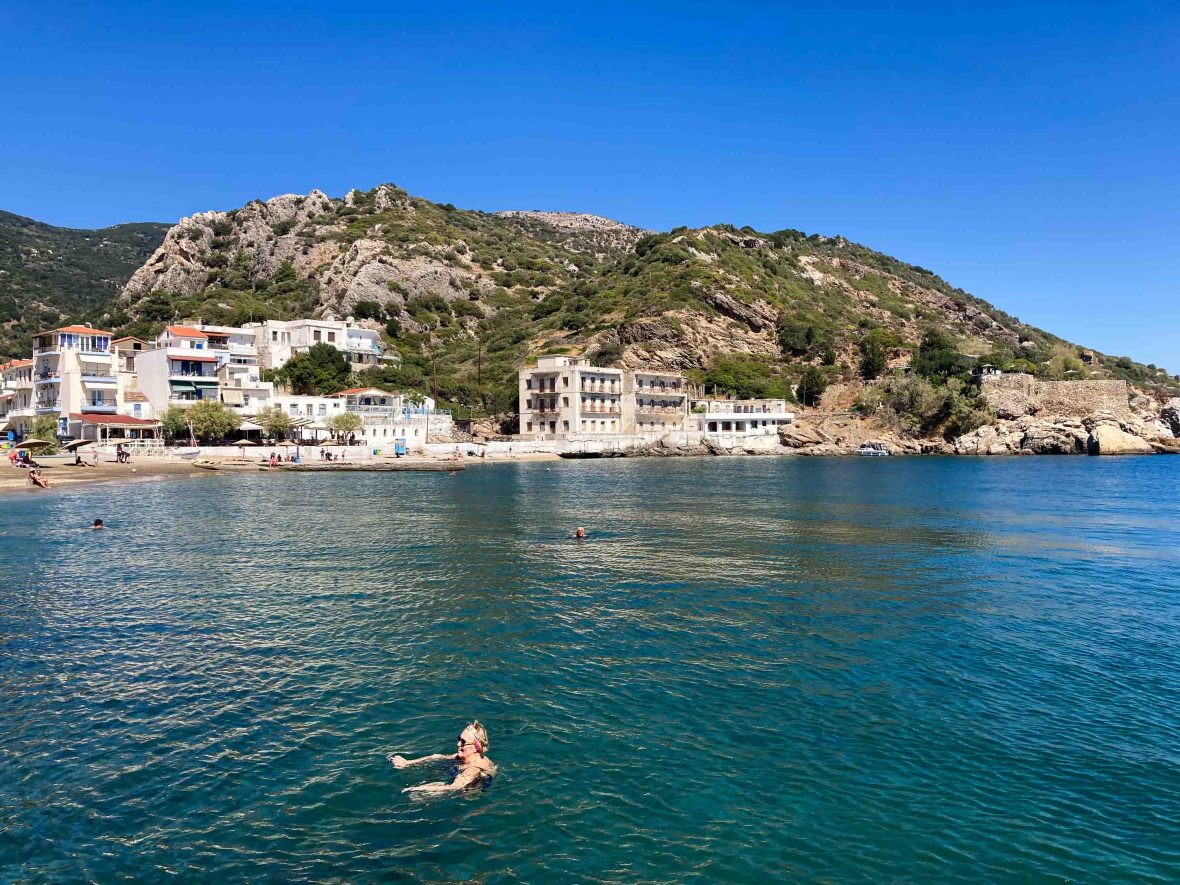
She is not alone. Dangling 30 miles off the coast of Turkey in the eastern Aegean, the Greek island of Ikaria is one of the world’s five ‘blue zones’, places of exceptional longevity, with remarkably high percentages of centenarians. Here, one in three people live into their nineties, free from chronic disease and dementia, and many reach 100. Other blue zones include Sardinia in Italy, Okinawa in Japan, Nicoya in Costa Rica, and Loma Linda in California.
In his book, The Blue Zones: 9 Lessons for Living Longer, explorer, National Geographic Fellow, award-winning journalist and producer, and New York Times bestselling author Dan Buettner takes a deep dive into the reasons behind this—and he draws some fascinating conclusions about Ikaria. “Ikarians don’t just live long, they live well and remain sharp,” he says.
“We’re obsessed with comfort and think we can pursue health, but we’ve got it wrong: Comfort kills you,” continues Dan. He explains how Ikarians eat a wholefood, plant-based diet: “One thing that is unique to Ikaria is the 80 different kinds of wild greens the islanders chronically consume, some of which contain 10 times the antioxidants of red wine, lowering blood pressure and inflammation. They drink infusions of oregano, mint, rosemary and sage, and every day, small quantities of homemade red wine that is natural and sulphite-free.”
Nobody gives a damn about schedules on Ikaria. Businesses open late. Time slows. Days slide into a gentle rhythm. We spend mornings looking for wild figs and swimming in glassy turquoise waters at remote coves, and afternoons hiking up the monopatia (old footpaths) that twist into boulder-scattered granite mountains and holm oak woods droning with cicadas. Before some roads were completed in the mid-1990s, these tracks were the only way to reach hamlets higher in the hills. The only way home.
“There’s a strong communist—better interpreted as ‘communal’—influence here. People aren’t selfish—they look out for each other and keep their ageing parents close by, tapping into 80 to 90 years of wisdom.”
- Dan Buettner
“Ikaria is bewitching—everyone feels its magic, though it’s hard to describe,” continues Dan. “It’s a rough, hardscrabble island that’s not really set up for tourists. It either embraces you or spits you out.”
The island’s geography means people are forced to walk uphill, whether they’re gardening, visiting friends or getting groceries. “It’s not exercise; it’s just what they do,” he says. “They are inspired to be outdoors and socialise. Their default is longevity.”
Driving east along cliff-hugging roads, we stop in lay-bys to gasp at views of amphitheater-like Agriomelisa Bay, villages baubled with blue-domed orthodox churches, and the scarred slopes of Mt Atheras, soaring 1048 meters from sea to summit. In the blazing heat of a September day, we ditch the car in Vaoni to trudge down through olive groves to a modest lump of rock, where a wax-winged Icarus is said to have bumped his head when he fell to earth after flying too close to the sun—giving Ikaria its name.
The sea where Icarus drowned is cited as a contributing factor to Ikaria’s longevity. The hot springs that bubble up along the coast are among the world’s most radioactive, with radon-laced waters seeping through faults in the rock at temperatures between 31°C and 58°C.
A far cry from fancy spas, these thermal baths are free and alfresco. I join a handful of bath-robed Ikarians at the beach of Lefkada, almost scalding myself as I edge carefully past slippery rocks into the water, floating beneath a flawlessly blue sky.
At Therma, further east, the remains of Roman baths point to the ancient origins of the island’s healing waters, apparently a cure-all for ailments from arthritis to respiratory problems. It takes more than a quick dip to see real results, but that night, I sleep deeper than I have in ages.
The coast has its myths and miracles, but to touch the island’s soul, you must go into the wild mountains. When pirates ruled the Aegean from the 16th to 19th centuries, Ikarians high-tailed it into the rocky interior, building chimneyless, windowless anti-pirate houses, which resembled giant boulders from a distance.
This cut-off, self-sufficient, nature-driven existence forged resilient people and tight-knit communities. Then during the Greek Civil War in the mid-20th century, 13,000 communists were exiled to the island—an ideology that persists among some of the older generation to this day.
“There’s a strong communist—better interpreted as ‘communal’—influence here,” says Dan Buettner. “People aren’t selfish—they look out for each other and keep their ageing parents close by, tapping into 80 to 90 years of wisdom. Old people here garden and cook for their kids and grandkids. They have purpose. And the message from their families is: we not only love you, we need you. This keeps them mentally and physically fit.”
Up and around hairpin bend, through pine forest and sunlit vineyard, I reach the monastery of Theoktistis at the island’s heart. Tucked discreetly among the boulders behind is the cave chapel of Theoskepasti, its mushroom-like capstone something from a kids’ fantasy story. I stoop to enter the chapel, where the sacred relics of St Theoktisti were supposedly hidden, admiring the painted wooden icons in the half-light.
Narrow roads whip west, past great spires and buttresses of granite rock and rugged slopes misted purple with wild heather. It’s this heather that makes Ikaria’s thick, dark, intensely flavoured Anama honey, a powerful anti-inflammatory that many Ikarians take a spoonful of each day, like medicine.
“My grandmother is 88 and acts like she is 30. She gardens, takes care of her animals, goes out for coffee, jokes about sex, dances at parties. She has even been known to play spin the bottle!”
- Eftychia Afianes
Christos Raches, a blue zone hotspot, perches idyllically on a hillside, paved in slate, painted white and roofed in terracotta. The village hosts one of the island’s most vivacious panagiria (feast days) on August 6th, the day of Jesus Christ, with drinking and dancing to violin-led folk music. But there is a buzz here on any given day.
At a café on the square, I sip a cup of sideritis (‘mountain tea’), an endemic wonder herb packed with antioxidants, said to boost the immune system, improve sleep, lower anxiety and prevent dementia. It tastes the way the island smells—of minerally earth and pine. Kids zip past on scooters, old men play backgammon and people of all ages link arms in the shade of great plane trees.
At Afianes Winery in the nearby hamlet of Profitis Ilias, Eftychia Afianes tells me more about Ikaria’s community spirit. “Ikaria is isolated and mountainous and this has created strong social bonds. Old people stay youthful and loneliness and stress are virtually unheard of,” she says. “My grandmother is 88 and acts like she is 30. She gardens, takes care of her animals, goes out for coffee, jokes about sex, dances at parties. She has even been known to play spin the bottle! Younger Ikarians are better traveled and more digitally connected, but our lives are still rooted in family and tradition.”
Clasped between the mountains and the sea, the biodynamic winery, founded by Eftychia’s father, Nikos, and mother, Maria, is special. Grape-picking here follows the lunar cycle and the harvest takes place at full moon. Grapes are crushed by foot in a granite press and left to ferment in clay pots (pitharia) buried underground. The natural wine is extracted with a gourd. The making of Pithari, a dry, resveratrol-rich red wine made with the endemic Fokiano grape, is little changed since antiquity.
And indeed the first-ever written record of wine is a mention of the Ikarian red wine Pramneios Oinos in Homer’s epic Odyssey, which apparently fortified the warriors in the Iliad. Dionysus, party-loving god of wine, was also born on Ikaria, legend has it, and worshipped in a cave above the secluded cove of Lero in the island’s northeast.
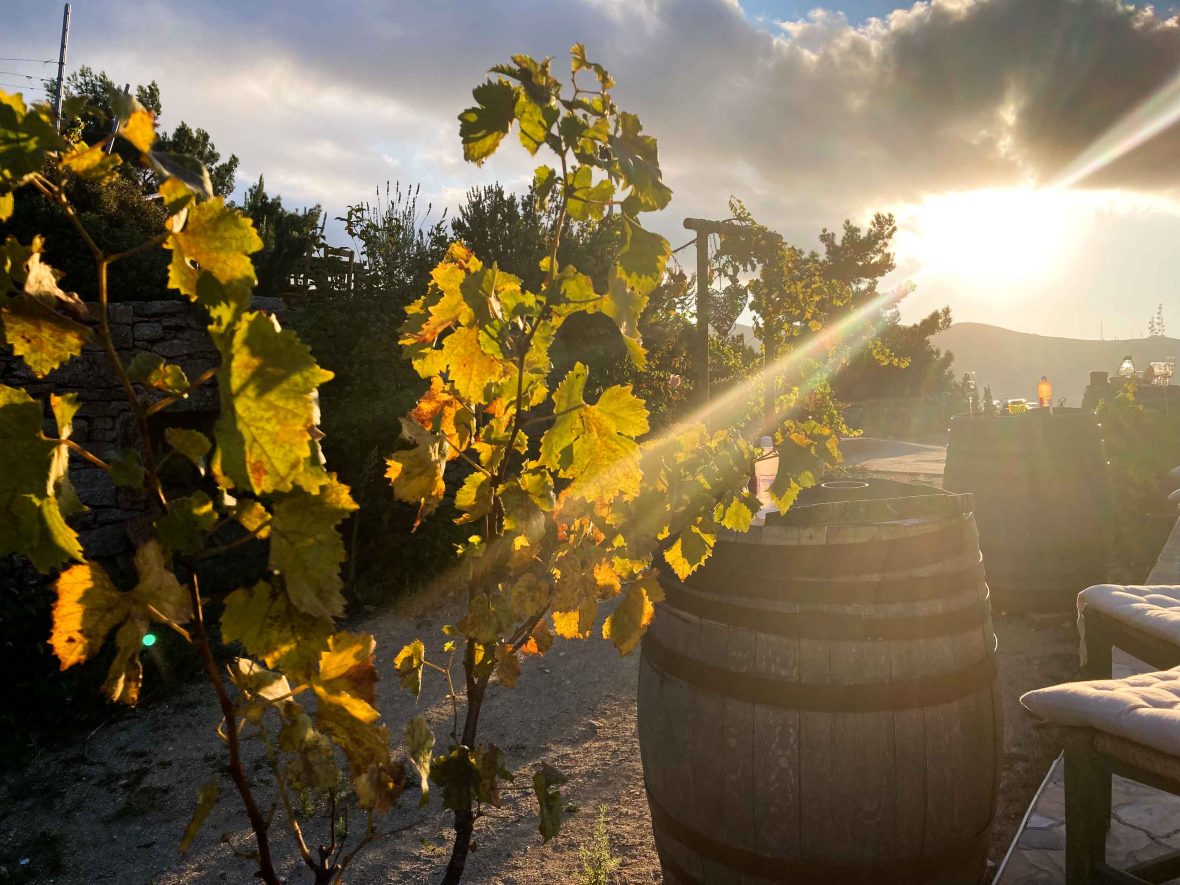
As the late afternoon sun trickles through the vines and the mountains fall into shadow, Eftychia, Maria and I talk longevity—wine and water, herbs and honey, social connections and lack of stress. But is that it? Or could something else be contributing to the long, healthy life of Ikarians?
“There’s something in the air,” adds Eftychia wistfully. “Studies have proven that when the sun hits the granite, it releases magnesium—breathing this air is like an antidepressant for life.”
As I breathe in the salty, herb-scented air that could—should I stay long enough—help me live to 100, I realize I am going to be driving back down the windy mountain road in the dark. Like all good Ikarians, I have forgotten time—easily done on the island where people forget to die.
—
Getting there: Hellenic Seaways operate ferries several times weekly (journey time, two hours) between Mykonos and Évdhilos in the island’s north; the weekly Dodekanisos Seaways ferry travels from Kos to Agios Kirykos in the south (3½ hours). Tourism is low-key; the writer stayed at Ikaria Studios in Magganitis.
***
Adventure.com strives to be a low-emissions publication, and we are working to reduce our carbon emissions where possible. Emissions generated by the movements of our staff and contributors are carbon offset through our parent company, Intrepid. You can visit our sustainability page and read our Contributor Impact Guidelines for more information. While we take our commitment to people and planet seriously, we acknowledge that we still have plenty of work to do, and we welcome all feedback and suggestions from our readers. You can contact us any time at hello@adventure.com. Please allow up to one week for a response.
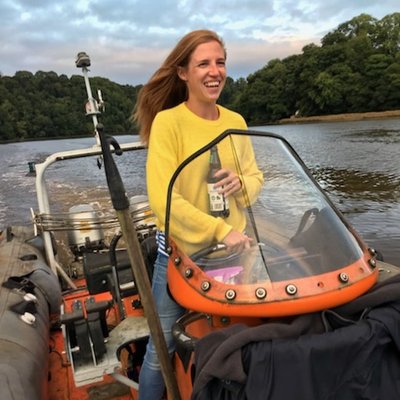

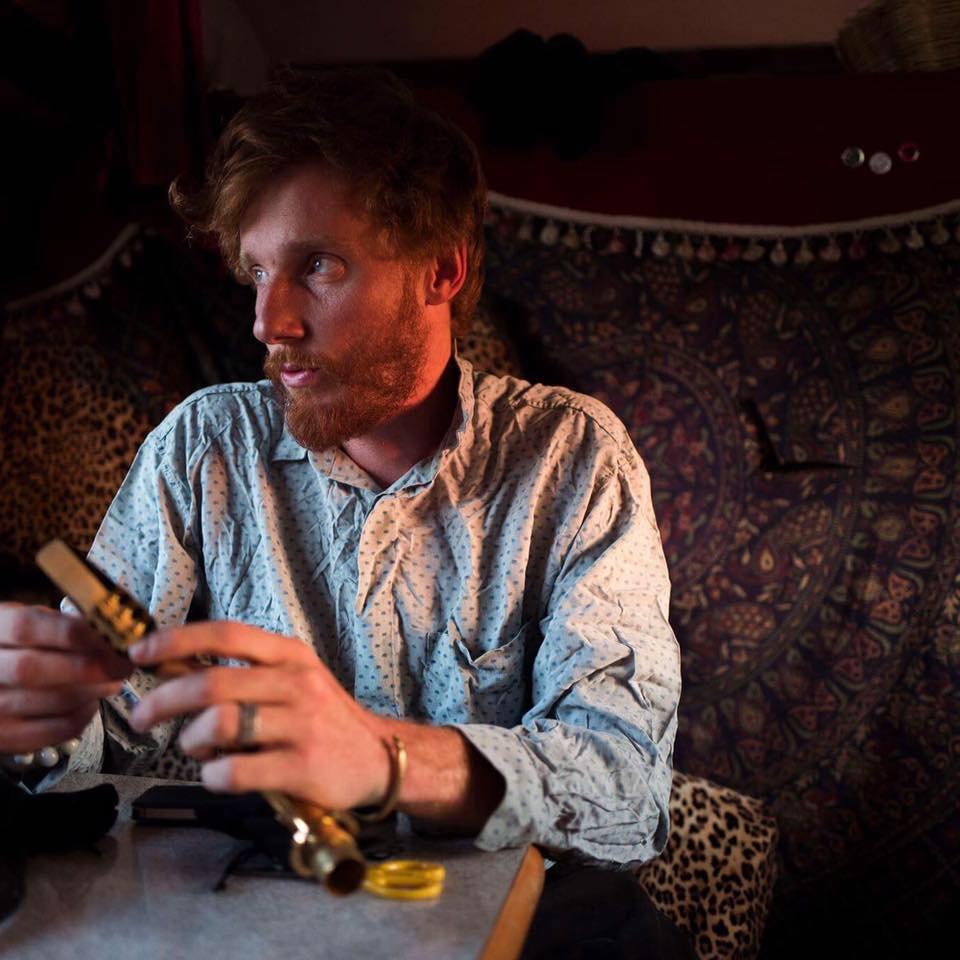

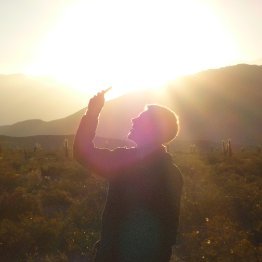

Can't find what you're looking for? Try using these tags: